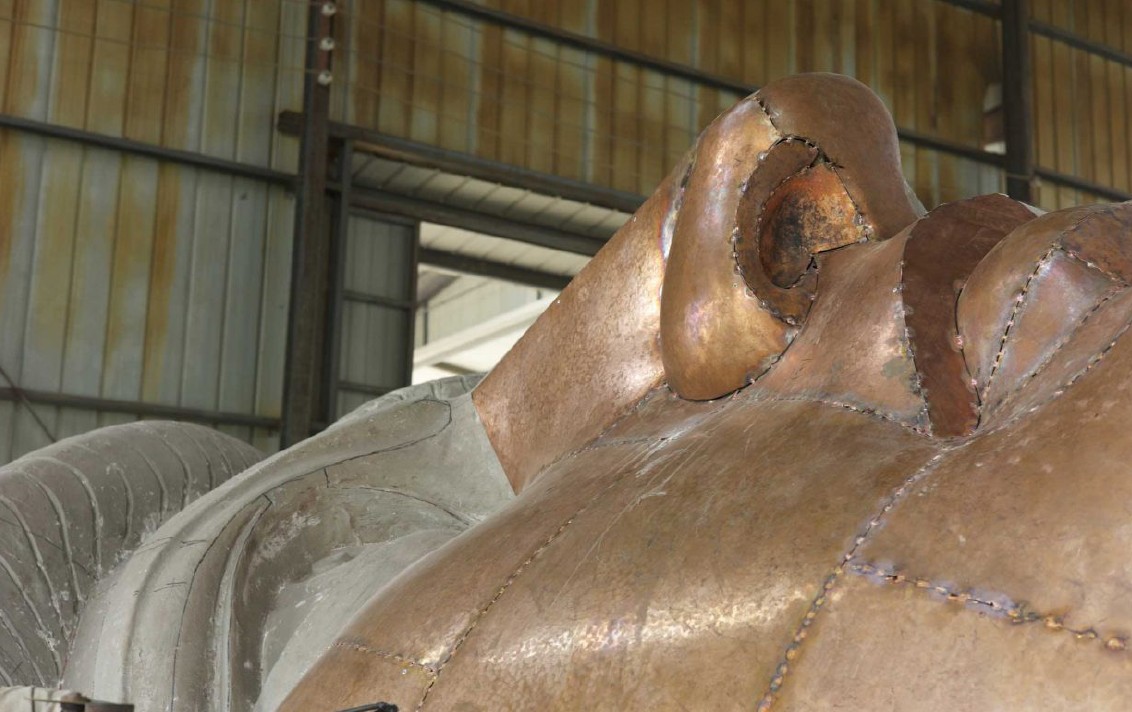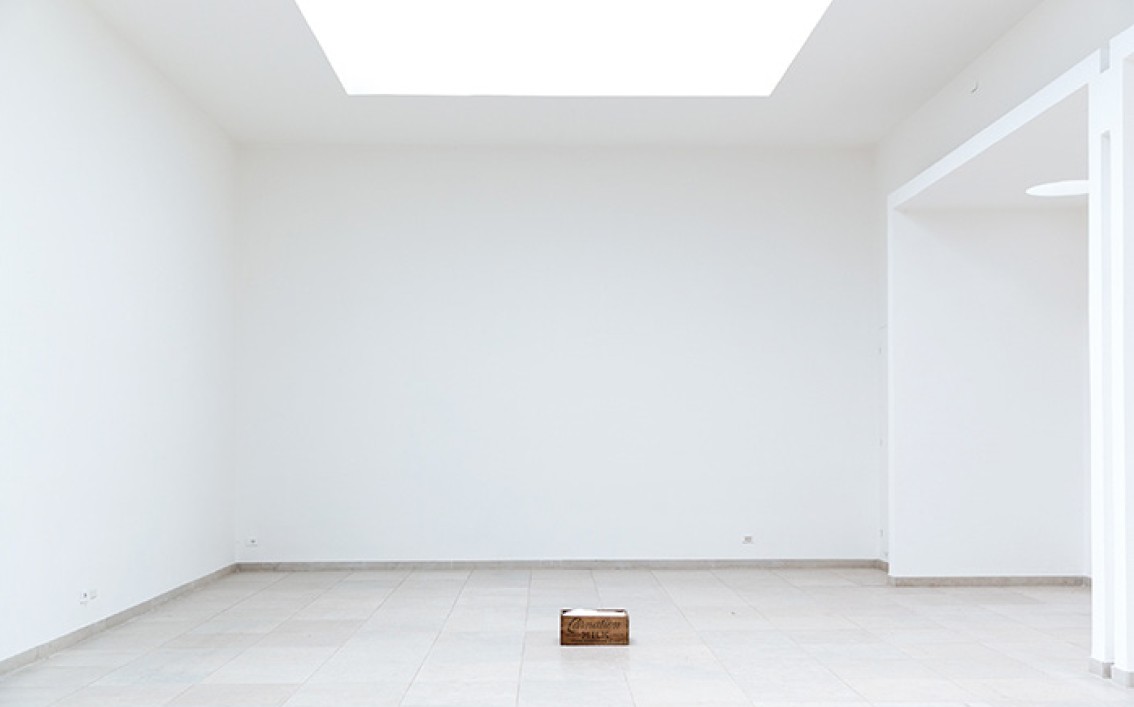SCENORAMA
A new collaborative platform for artistic experimentation and new commissions at Javett-UP
SCENORAMA is a new collaborative platform for artistic experimentation and new commissions working with artists and transdisciplinary researchers from different locales connected to pan-African experiences. It will run from 25 May 2022 – 1 March 2023.
SCENORAMA combines the words ‘panorama’ and ‘scene’ in order to present a viewpoint of shared networks of experiences, belief and knowledge systems across different localities in Africa and the Diaspora. The artists included in this version of SCENORAMA are interested in creating new ways of thinking about the accessibility of individual and collective experiences. With research focuses that oscillate between historiographical impulses, systematic formation and transformation they provide possibilities for the emergence of multiple statements that mark the present by engaging our experiences and perceptions of historical time.
This pilot version of this curatorial undertaking features research and artistic positions by Amanda Mushate, (ZIM) Luana Vitra (BR), Manyaku Mashilo (SA), Nolan Oswald Dennis (SA), Nyakallo Maleke (SA), Oscar Murillo (COL/UK), Paulo Nazareth (BR), Simnikiwe Buhlungu (SA/NL) & Tessa Mars (HAT/NL) in collaboration, Thierry Oussou (BEN/NL) and Zara Julius (SA).
SOUTH SOUTH interviewed Javett-UP‘s Curatorial Director Gabi Ngcobo about the programme.
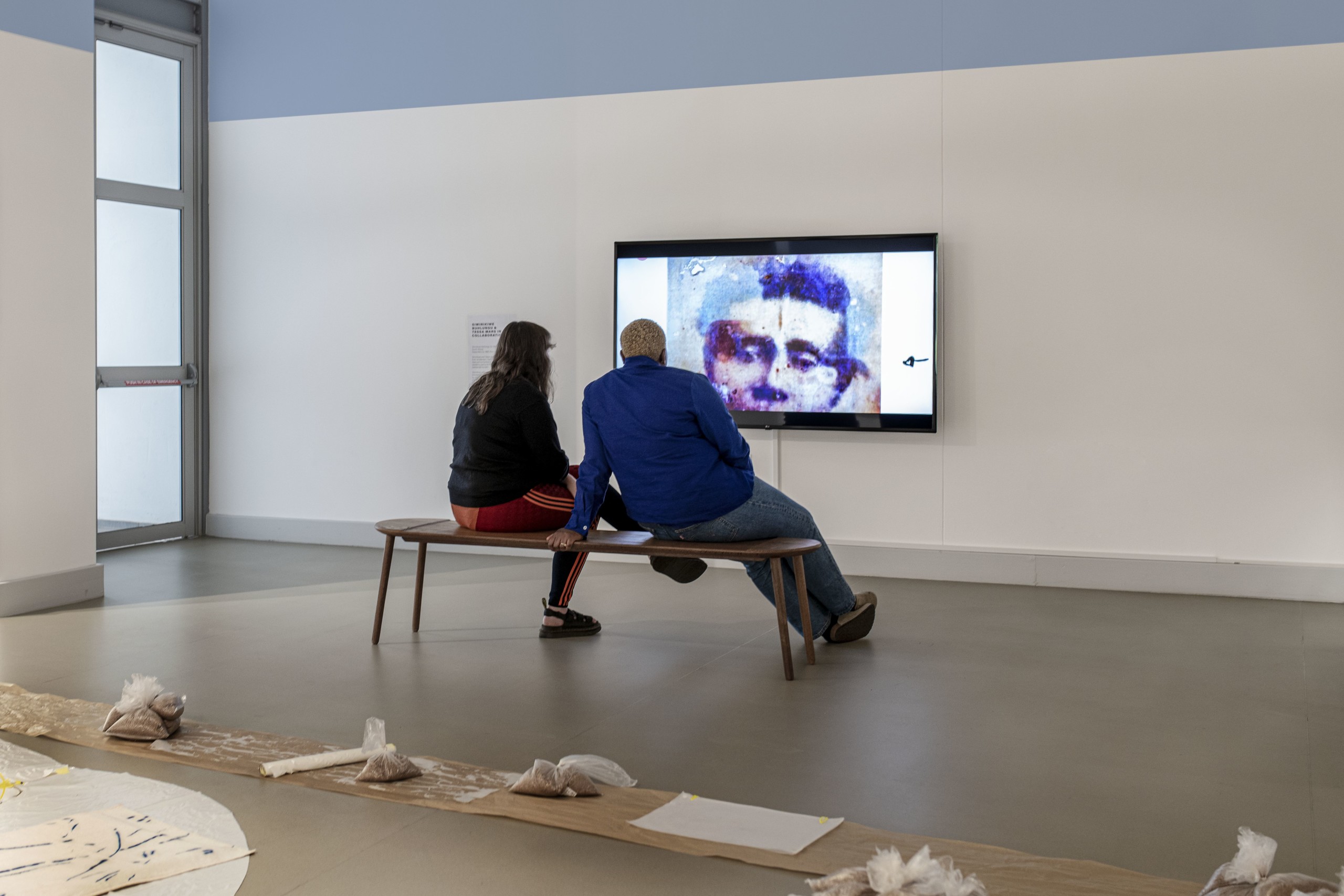
Installation View
Photography by Tatenda Chidora
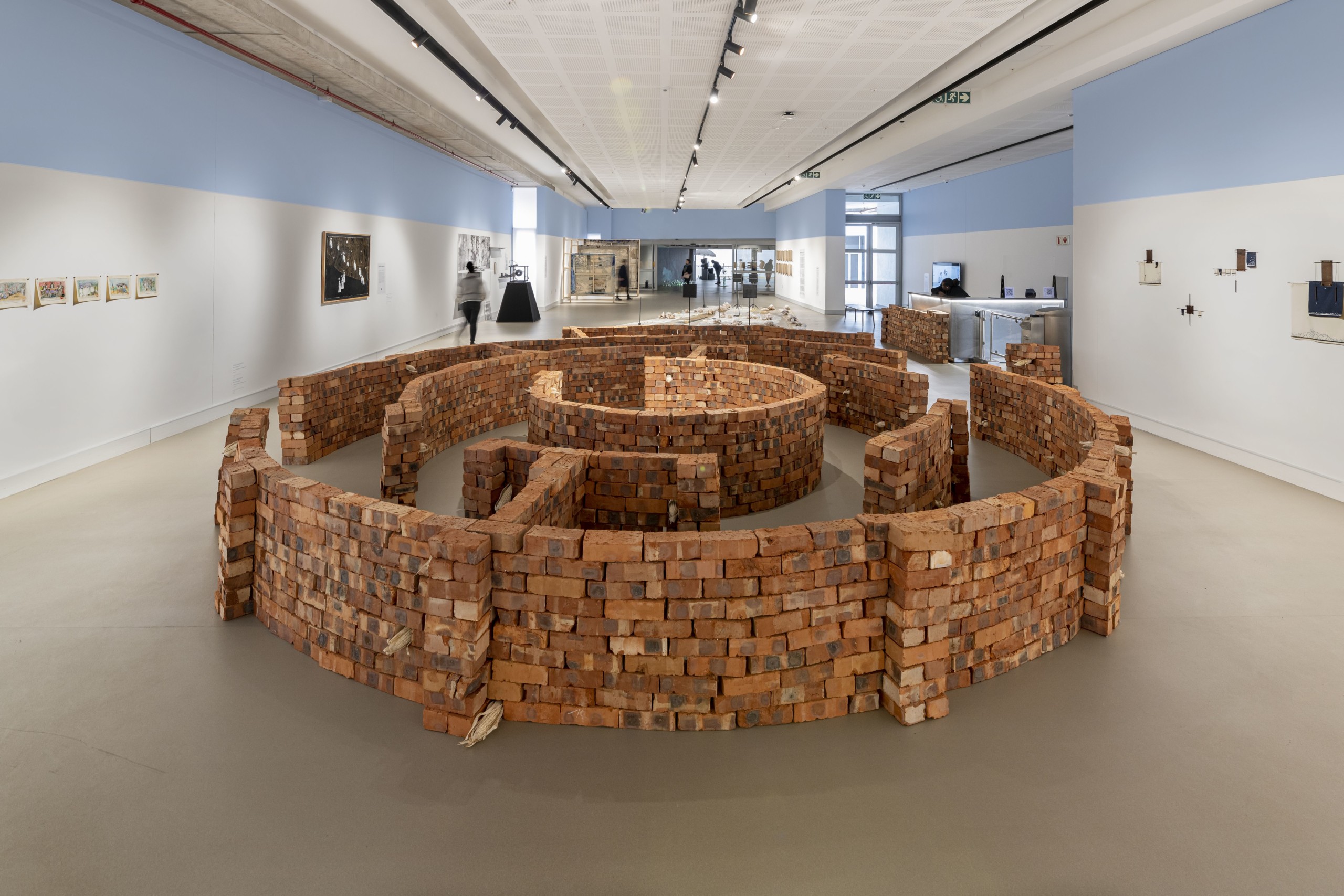
Installation View
Photography by Tatenda Chidora
SOUTH SOUTH (SS): For our readers from across different regions who may be being introduced to Javett-UP for the first time, how would you describe the institution’s vision and position with the South Africa art scene?
Gabi Ngcobo (GN): The Javett Art Centre at the University of Pretoria (Javett-UP) is an independent platform founded by the Javett Foundation and the University of Pretoria. The art centre opened to the public three years ago on the 24th of September 2019, a South African national day that, since 1995, marks a holiday known as Heritage Day. Javett-UP positions itself as a critical space which strives to create events of knowledge with multi-entry points and layers of resonance. As an art centre adjacent to a university that holds important archives of national significance, our curatorial projects embrace approaches that seek to create spaces for collaboration and participation that have potential for engaging in dynamic conversations that can hopefully create triggers for the development of new future concepts and ways of being in the world.
Beyond engaging with historical collections in our care, the Javett-UP is committed in engaging with ideas of living creative practitioners with our collections sometimes acting as primary catalysts. We strive to create programmes that seek to understand the fluctuating nature of humanity and how we respond to various political challenges; the economic, environmental, educational, etc.
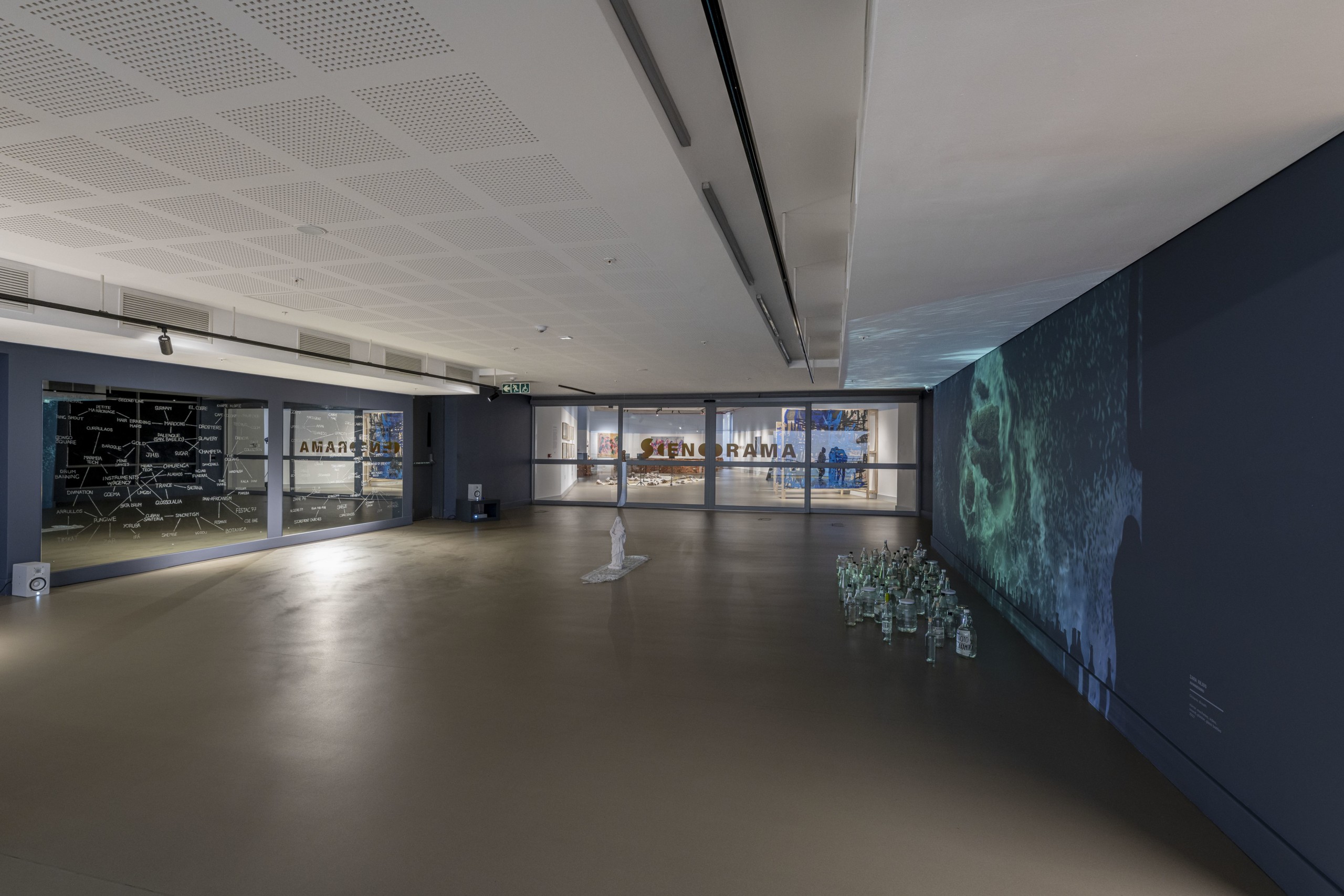
Installation View
Photography by Tatenda Chidora
Javett-UP positions itself as a critical space which strives to create events of knowledge with multi-entry points and layers of resonance.
SS: SCENORAMA is a new collaborative platform for artistic experimentation and new commissions working with artists and transdisciplinary researchers from different locales connected to pan-African experiences. How did the idea for this platform come to be? Could you share more details about the plan for the platform?
GN: The idea of SCENORAMA came out of a need to create a collaborative platform that positions the city of Tshwane as a view point to better understand how we are historically and presently connected with global Pan-African experiences. It is a platform from which we are interested in finding creative ways of sharing urgent questions, resources, ways of undoing, especially those that help us refresh our understanding of historical configurations. This pilot version of SCENORAMA is a proposal towards a recurring multi-disciplinary event that will be organised as a festival taking place every two years and growing to become a signature event in landscape of the city of Tshwane, the Gauteng region, South Africa, Africa, the African diaspora and beyond.
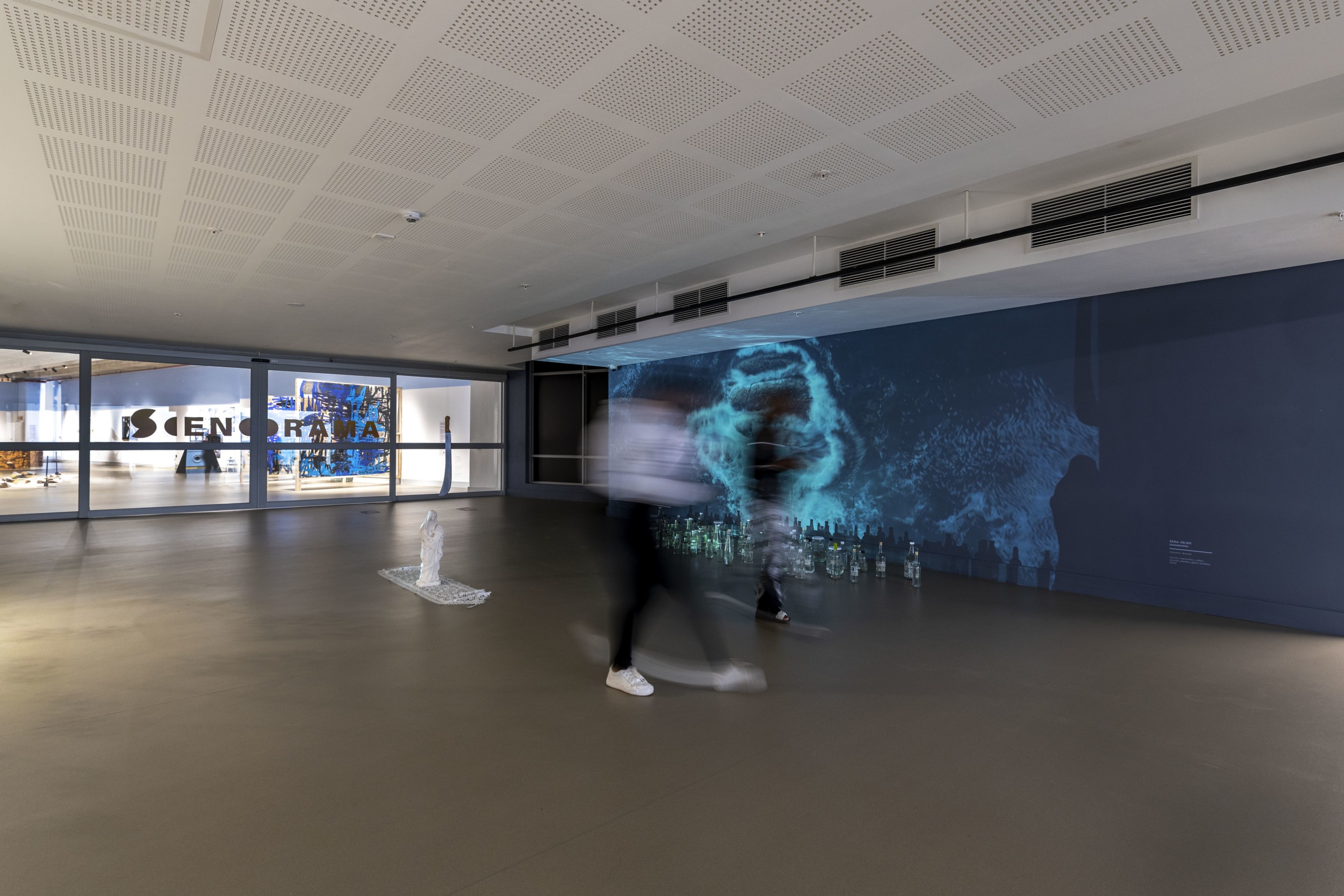
Installation View
Photography by Tatenda Chidora
The idea of SCENORAMA came out of a need to create a collaborative platform that positions the city of Tshwane as a view point to better understand how we are historically and presently connected with global Pan-African experiences.
SS: What were considerations when thinking about the first selection of artists and researchers that are included in this first iteration? What drew you to their work and why do you think they work collectively for this manifestation?
GN: For the pilot version of SCENORAMA we thought of practitioners whose research processes are concerned with establishing unfamiliar contact zones, especially those that are not immediately visible as such from the viewpoint of where Javett-UP is located and adjacent to. Artists featured in the pilot version of SCENORAMA share diverse or/and unique approaches to working with memory. These approaches are not set in stone but are rather part of ongoing enquiries that are variedly collaborative in their nature. The participants in this pilot version of the project interrogate the systematic problems of ordering knowledge and thus test the boundaries of what it can mean to critically produce within formalised art spaces.
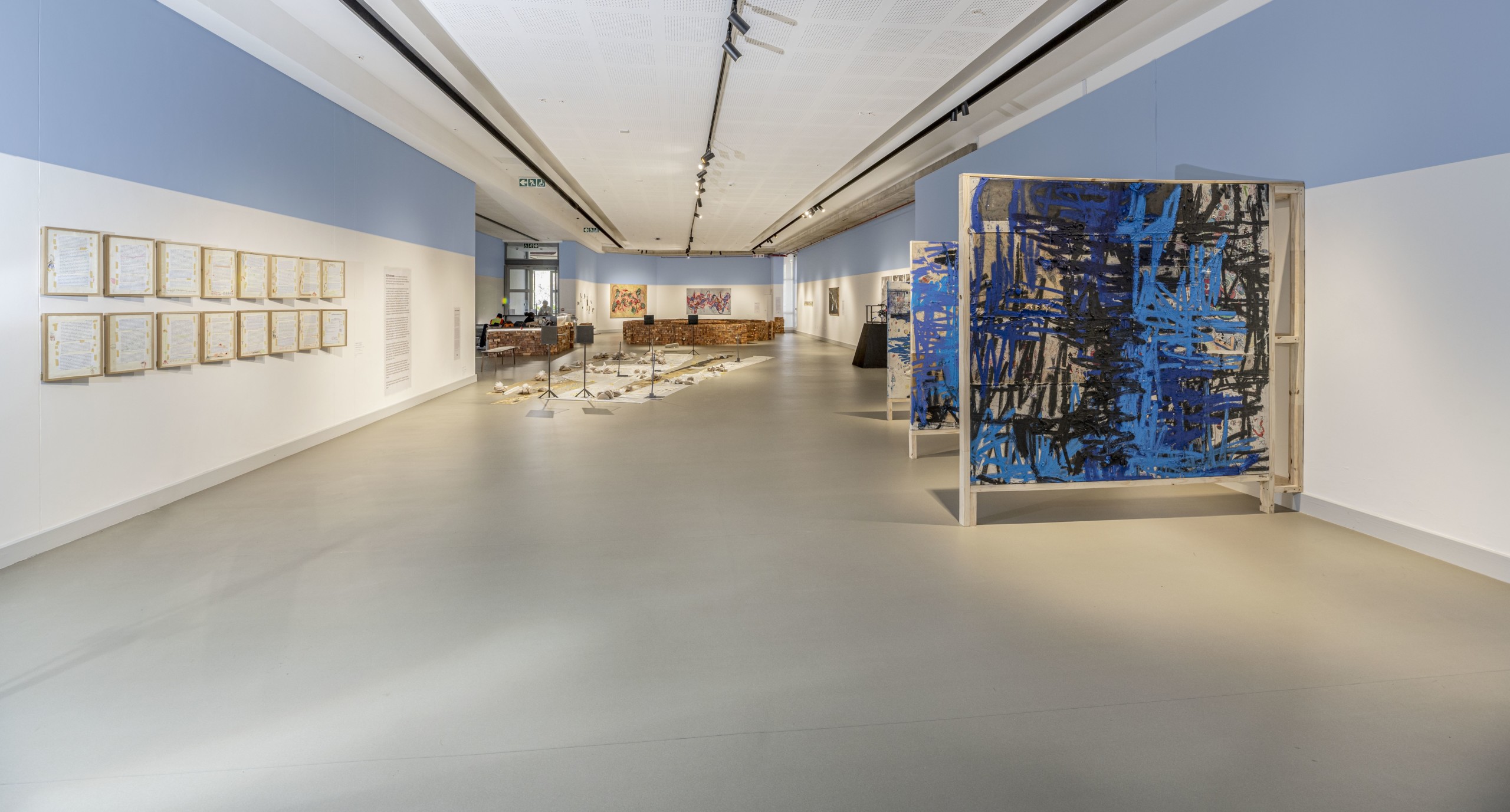
Installation View
Photography by Tatenda Chidora
SS: The gallery is interacted with as a fluid, moving space allowing for varying interventions. What is the significance of ensuring the space stays open and moveable in this way?
GN: Javett-UP is constructing itself as a living academy, or an informal classroom. The idea of choreographing the gallery space as an ever-shifting experience is meant to be reflective on how, in the past two years, we have all been forced to reconsider how we relate to and process time. In SCENORAMA time is considered as one of the most critical parts of the unknowable recipes of planning ‘effectively’, and most often for an imagined or hoped for future before or beyond ourselves. An ever shifting thinking and creative space allows for unknowable spaces that are able to free themselves from institutional guidelines of what a gallery experience can be or what it wants/demands. SCENORAMA is an open proposal that desires to be a space for the necessary practical and ideological shifts.
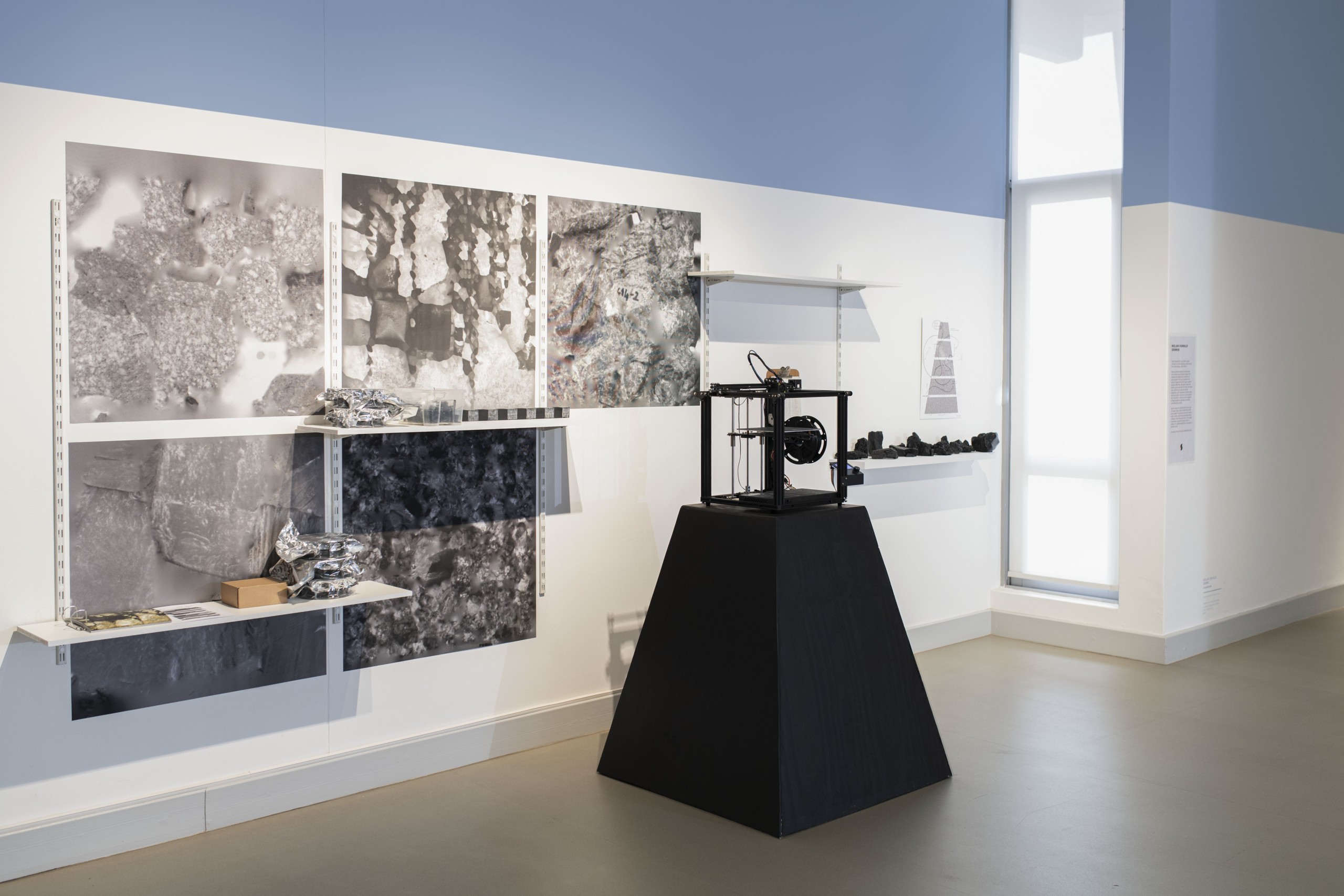
Installation View
Photography by Tatenda Chidora
Javett-UP is constructing itself as a living academy, or an informal classroom. The idea of choreographing the gallery space as an ever-shifting experience is meant to be reflective on how, in the past two years, we have all been forced to reconsider how we relate to and process time.
SS: What do you have upcoming in the SCENORAMA programming that you would like to share with our readers?
GN: To date, we have hosted a Curatorial Dialogue, a platform different from a traditional walkabout, in which the audience is invited to collectively discuss the exhibition and individual works. In September we hosted a listening session between artist Zara Julius and traditional healer Vuyiswa Xeketwane discussing the concept of water in Zara’s work. On the 19th of November we hosted a Brunch Study Session with Nyakallo Maleke and Nolan Oswald Dennis. We plan to end with a musical offering as way of closing SCENORAMA in March 2023.
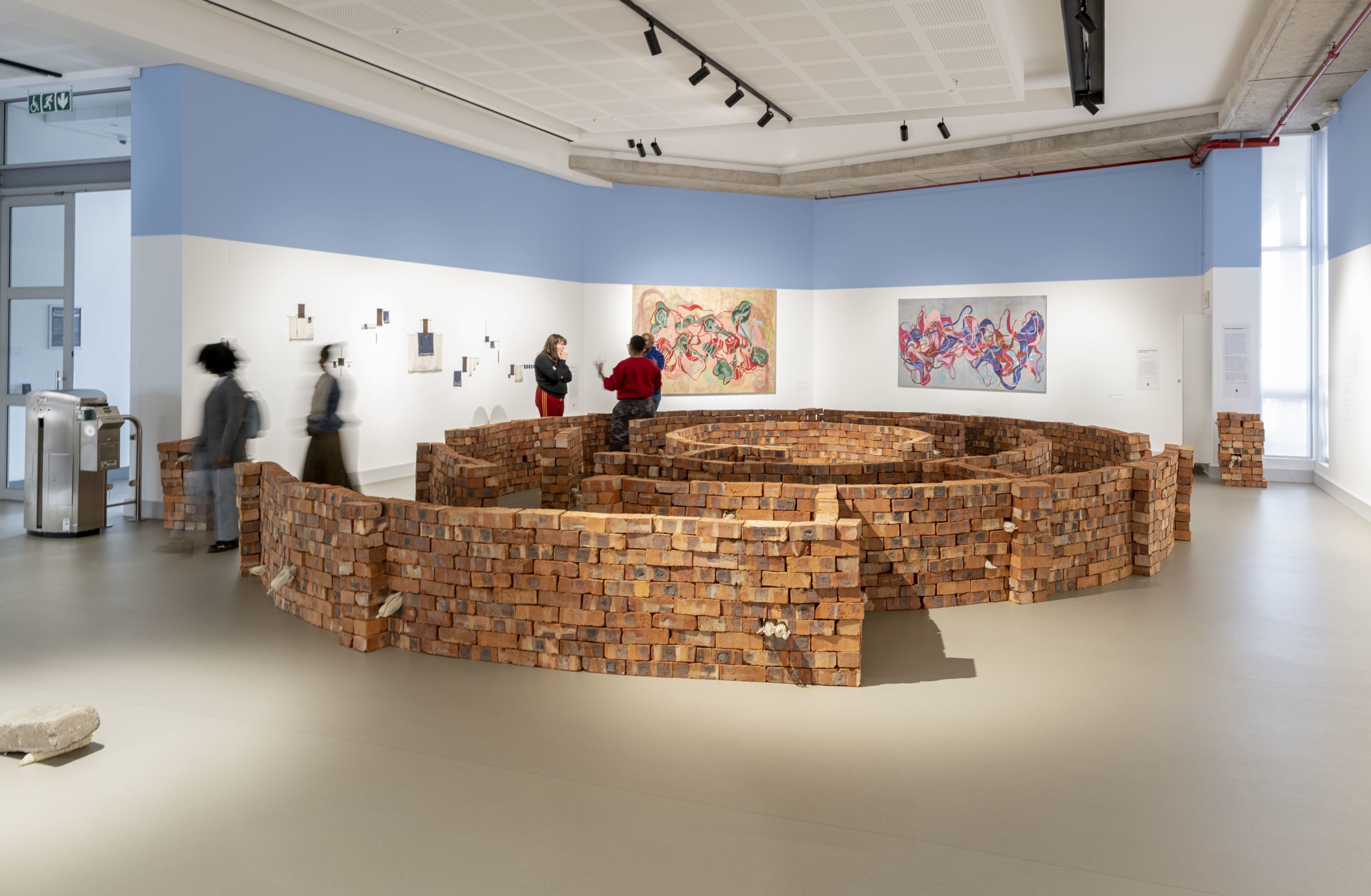
Installation View
Photography by Tatenda Chidora
Javett-UP is constructing itself as a living academy, or an informal classroom. The idea of choreographing the gallery space as an ever-shifting experience is meant to be reflective on how, in the past two years, we have all been forced to reconsider how we relate to and process time.
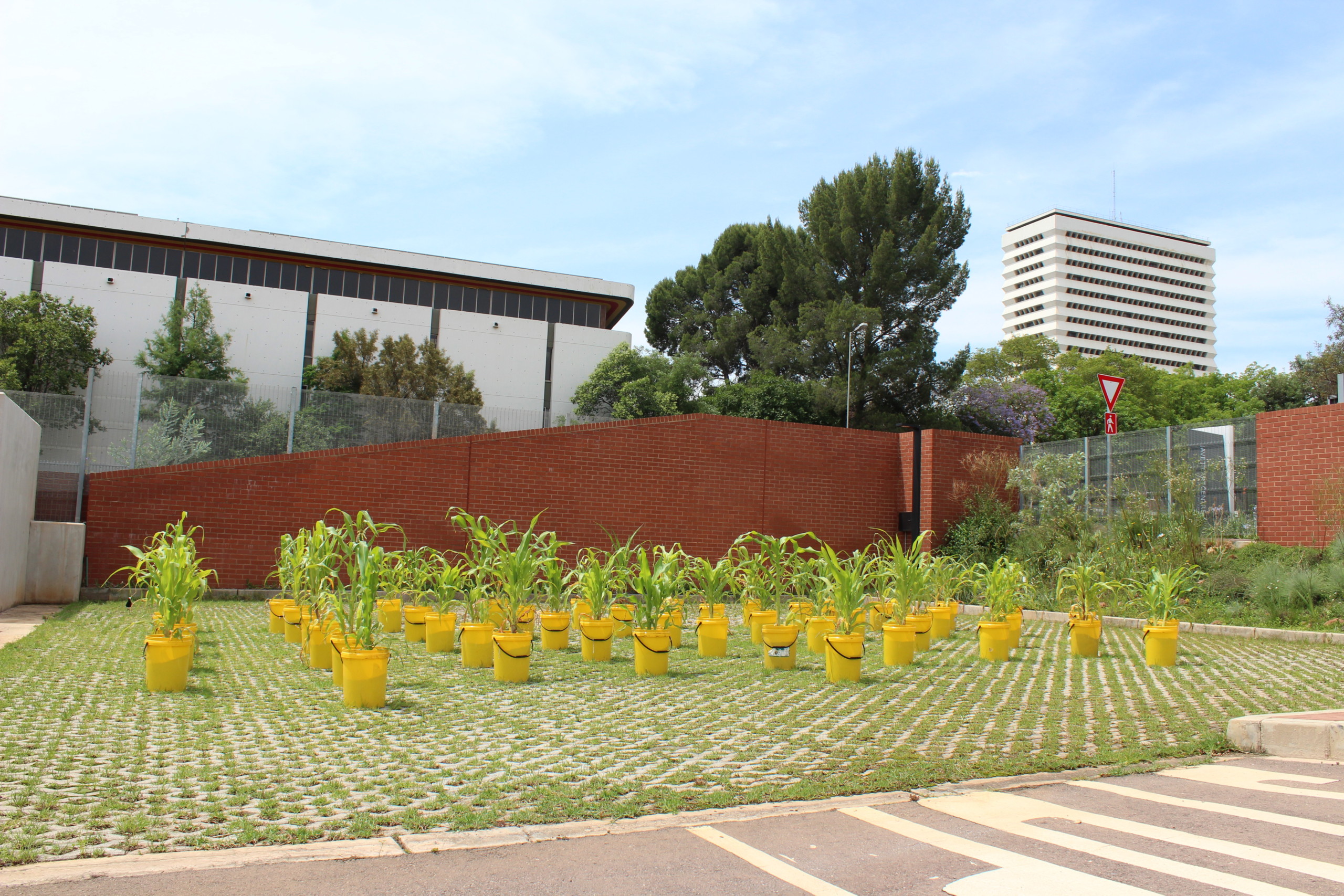
Installation View
Photography by Gillian Fleischmann

